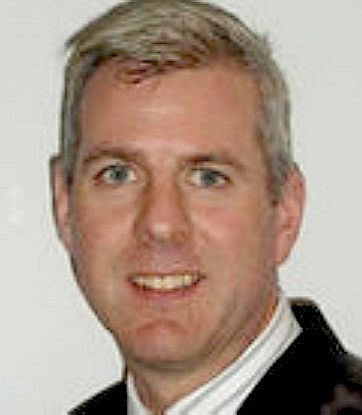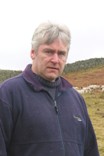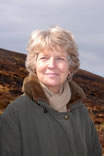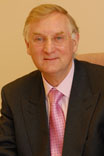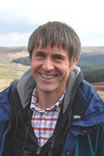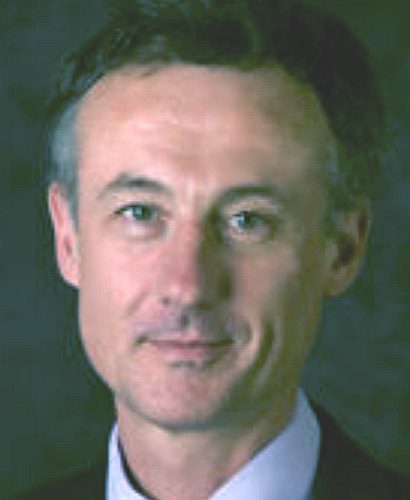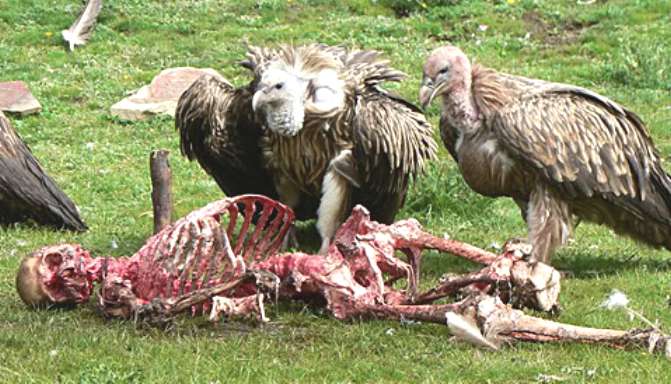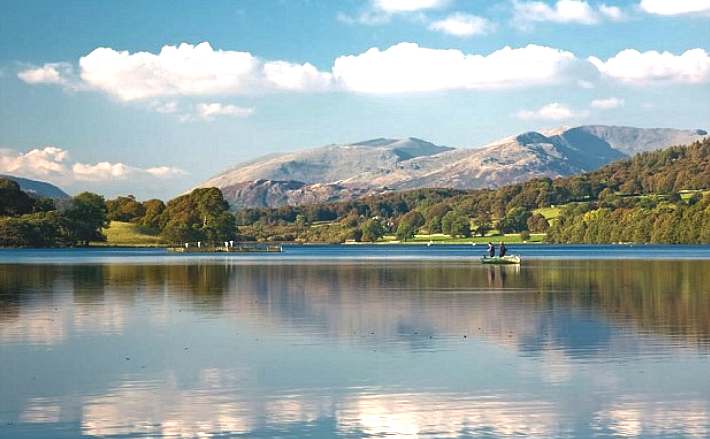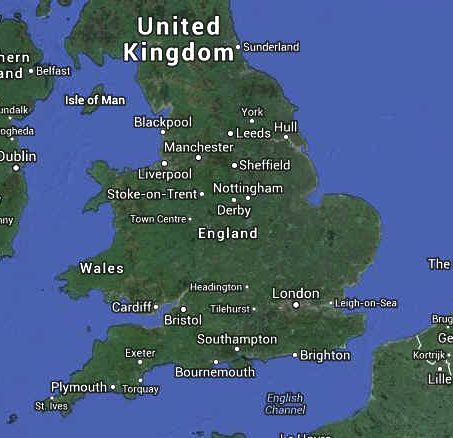|
NATURAL ENGLAND
|
||||||||||||||||||||||||||||||||||||||||||||||||||||||||||||||||||||||||||||||||||
|
Natural England's new chief executive officer from the 1st of September 2014, is responsible for leading efficiency and performance improvements across financial and corporate services. They are also in charge of seeing through reform in line with the agreed strategic direction. The chief executive also oversees staff development initiatives. We hope that all of the above will be conducted in accordance with Human Rights Act. James was previously the CE for the Marine Management Organisation (MMO).
The Natural England Board has corporate responsibility for ensuring that Natural England fulfils the aims and objectives set by the Secretary of State. The main roles of the Board are to establish Natural England’s strategy, approve direction and review performance of the organisation. As a local and national authority, they are bound by Section 6 of the Human Rights Act 1998, being that they must not violate any of the Articles of the European Convention. In particular they must act without discrimination and fairly, such as to comply with Articles 14 and 6.
There have though been cases where bias has been a feature of case handling. We are following a live case at the moment, being handled by Cath Jackson and Sue Beale, where permissions had been agreed and a landowner at great financial cost made adjustments, but then having agreed those adjustments would be acceptable, Natural England then sought to prosecute the landowner, even where he had permission from the local council for certain works, and there was no danger to any wildlife being caused by other works, which were to protect grazing animals, that otherwise might escape and either drown, or become a danger to nearby road users.
Such measures are legal at all times according to the Wildlife and Countryside Act 1981. But it is misfeasance in public office, if one does not do what the position of office requires. In addition, Section 4 of the Fraud Act 2006 may apply where an officer of Natural England fails to perform a duty, with the intention of causing a person loss, or even if the failure puts the target at risk as to loss. All of this raises serious questions as to the manner of operating of Natural England officers. That the target is not native to England may also be a live issue - as in Jones v. Swansea City Council [1990] 1 W.L.R.
We have heard on the 15th September 2013 that the actions of Natural England appear to have been the trigger (instrumental) for what may be racially motivated attacks on the land. A person or persons unknown came onto the land and released a number of deer - causing chaos, and if Natural England are to be believed - we are sure they will now be chasing the culprits for intentionally releasing animals in such manner as to cause damage to this so-called SSSI. Will they? Of course not. Because the culprits are most probably Sussex locals who have been egging Natural England to have a go at what is as far as we can see generous acts of kindness. Enterprise such as this is encouraged by Natural England in the Lake District (see Telegraph story below), but not in Sussex when the owner is not native to England. Natural England's policies are thus discriminatory plain and simple.
NEGLIGENCE
One problem that we have identified, is that Natural England's agenda to gain additional land for wildlife is in contrast to the need to conserve and record history for future generations. This is a function of English Heritage and the County Archaeologist. As of October 2014, we have learned that Natural England brought the prosecution against a farmer on the Pevensey Levels, in denial of any history attaching to the site.
This is an affront to the men and women that gave their lives during the Second World War. In particular, RAF Wartling and RAF Pevensey were and are home to the world's first ever early warning radar station complex known as a Home Chain. Now it appears that that Ms Beale and Ms Jackson (Seen below) wish to re-write history, in asking a farmer to remove all evidence of the works that were carried out on farmland between 1939 and 1955 by the Ministry of Defence. Another problem here is that Wealden District do not keep a list of sites or buildings of local historic importance, according to Bob Standley, the Leader of the Council.
Sue Beale (left) and Cath Jackson (nee Laing, right) - on site Friday the 20th September 2013. This matter is ongoing and still the subject of investigation against possible human rights violations.
DISCRIMINATION = MISFEASANCE IN PUBLIC OFFICE
Natural England have refused to indemnify a landowner, should any of their requirements cause him loss. While requiring the landowner, to, in effect, cease farming, something that Natural England refute, naturally, but what else do you call it when you impose conditions that are so unreasonable that farming could never be economically viable. Natural England have made no offer of compensation under the Agri-Environment Scheme, as to the implied message.
The site in question is claimed to still have significant numbers of Lapwings, according to their pet ornithologist, Allan Drewitt, who on Monday the 23rd of September 2013, told District Judge Stephen Nicholls that in his opinion fencing near Wartling village would have an effect on the nesting of the species. In reality, fencing in that location is commonly thought to have no effect whatsoever, mainly because Lapwings like open spaces - and in this location the plot in question is bounded by other plots with fences. Hence, Lapwings would go nowhere near - according to Mr Dewitt's own admission as to the species preferences.
It was alleged that Natural England were deliberately not keeping SSSI information up to date, so that when giving evidence, so called independent experts, could pull-the-wool over the eyes of the Judge. How a witness can be independent and be employed by the organisation bringing the case is beyond us. Clearly, if someone is called to give evidence by their boss, he or she is bound to answer as their employer would want.
Ignoring fences for now, it is a fact that the area in question is overrun by Magpies. Magpies are known to feed on the eggs of other birds and their young. Our operative counted 21 magpies during an early morning drive along the Pevensey Levels. The area is literally overrun by them, and now apparently, the giant fen raft spider.
According to Mr Drewitt, the numbers of Lapwings in 1990 were 6,000 birds, reducing to 3,500 birds by 2008. In this case, although Judge Nicholls asked some questions as to the position with up to date statistics. Allan Drewitt simply referred to the out of date statistics. To our mind that is a failure to advise. In a criminal court, a failure to advise may be quite a serious matter - as per the Fraud Act 2006: "an omission that might cause loss to another."
Natural England do not like the public having knowledge of raw data for any area, which seems to us to be to keep artificial controls alive on sites that are no longer of any scientific interest. How this might affect their funding from central government, or even the European Union is a matter for investigation. The advantages to secrecy is that Natural England would keep all their nice cozy jobs, and benefit from funding that they were not entitled to. In addition, they would then be able to avoid paying compensation to farmers, where NE might like to use land to try and increase numbers of rare birds.
Increasing number of animal unnaturally is not the function of Natural England (NE) and is an interference with nature, which in this case seems to be taking its own course despite the intervention of NE. Letting nature take its course is a view shared by English Heritage, when it came to cliff erosion, and refusing to shore up chalk cliffs to prevent coastguard cottages falling into the sea.
DUTY TO THE PUBLIC
There are though common law and statutory duties, that Natural England are bound by. In this case it is to monitor areas effectively, such that when an SSSI is no longer important, that that designation is removed. For, if it is not it is then unlawfully restricting the peaceful enjoyment of land in violation of Article 8 and Protocol 1, Article 1. To seek to prolong an untruth is in our view an unsustainable practice.
Where Natural England are sloth for the purposes of fooling the public, that is of course fraud, as defined in Sections 2, 3 and 4 of the Fraud Act 2006.
COMPENSATION TO FARMERS
Compensation Schemes are publicly-funded and provide payments to farmers who, in return, agree to manage their land for the benefit of the environment. In this case the landowner is doing his bit, but Natural England are not prosecuting the agency responsible for flooding, and that flooding has materially altered the status of the land when it comes to special scientific interest.
Where Natural England have not even advised the landowner of such compensation schemes, and refused to indemnify in case of livestock escaping, etc, we suspect discrimination is the root cause of their behaviour - perhaps giving in to public pressure, instead of doing their job properly.
The identity of the landowner is protected, but one of our operatives has visited the site in question (overtly) and provided us with verifiable facts in the form of photographic evidence, as to the excellent condition of the land - save for the flooding - which is a live issue, and does not involve the subject, but is rather a matter of negligent land management on the part of environment agencies; to include Natural England.
The pictures we now hold demonstrate that significant improvements have been made, bound to increase the natural habitats of local fauna, birds and spiders in particular. The case continues where documents have been provided late (years after requested), literally half a working day before the next hearing.
DELIBERATE FLOODING
it is alleged that another tactic adopted by Natural England is to flood a farmers land to make it worthless. How might they get away with that? Well, they would not install pumps to pump water onto the land, that would be an overt act and immediately injunctable? Instead, where a local pumping station controls water levels, instead of manning the pumps such as to manage the levels, they would simply not provide a man to ensure that the pumps were working correctly, so that more water was coming onto the land - for example to increase the numbers of Fen Raft spiders, now being bred for export from Sussex to other counties.
When giving evidence, Allan Drewitt confirmed that flooding the land would have the effect of increasing the attractiveness of the land for wading birds. We rest our case. If you search the web for a picture of Allan Drewitt, you will not find one. Does he have something to hide? Come on Allan, send us in a picture and please feel free to correct us on anything that you feel is not accurate.
STEPHEN NICHOLLS, ALLAN DREWITT & JOHNATHAN MITCHELL
If any member of the public can help us to clear up unresolved issues about the Pevensey Levels and lapwings and magpies, etc, we would be pleased to hear from you.
Our investigations continue ......
NATURAL ENGLAND BOARD - Natural England Board Register of Interests.
Mr Poul Christensen CBE - Chair - Date appointed: December 2006 Date appointed as Chair: 3 December 2009 - Appointed until: 31 December 2013
Poul was appointed Chair of Natural England on 3 December 2009. He was Deputy Chair of Natural England from 2006 and served as Acting Chair following the death of Sir Martin Doughty in March 2009.
He is a director of a successful family dairy farming business at Kingston Hill Farm, in Oxfordshire. He has a long track record of integrating conservation with the demands of modern farming.
Throughout his career Poul has taken a prominent role leading the farming sector through changing and challenging times. He is the joint founder of the Tenant Farmers’ Association, established in 1981 to provide a voice for tenant farmers. He was previously Chairman of Milk Marque in the late 1990s, steering the dairy sector through a period of significant change, Chair of the Rural Development Service until 2006, overseeing the launch of modern Environmental Stewardship schemes, and a member of the Defra Management Board before taking up the appointment of Chair at Natural England.
He is currently a Director of Agricultural Central Trading Limited, a farmer supply cooperative and is a Board member of the UK’s Joint Nature Conservation Committee. Poul was elected as President Elect of the National Federation Of Young Farmers' Clubs, in April 2012, and in the same month was advanced as a Fellow of the Royal Agricultural Societies (FRAgS). He received the Commander of the Order of the British Empire in the Queen's Birthday Honours List in 1991 for services to agriculture and the commercial development of the Agricultural Development Advisory Service (ADAS).
Professor David Hill - Deputy Chair Appointed: 2 May 2006 - Until: 31 March 2014
David was appointed Deputy Chair in February 2011 and has been a member of Natural England’s Board since 2 May 2006.
His responsibilities include: Northumberland and Yorkshire Dales National Parks, Joint Nature Conservation Committee (as Board member), Natural England’s Science Advisory Committee and Audit and Risk Committee, and the Natural England, Environment Agency and Forestry Commission Joint Sub-group.
David has significant experience in consultancy, nature conservation and company business strategy. He runs an ecological consultancy company, is Chairman of The Environment Bank Ltd and was previously Chief Scientific Adviser to RPS Group plc. Over the past three years he has been actively involved in promoting environmental markets to provide new and innovative ways of mitigating for impacts on ecosystem services arising from development, industry and corporate businesses.
David is a Fellow and past President of the Institute of Ecology and Environmental Management. He has published extensively on ecological issues over the past 25 years. David is a member of the Government’s Ecosystem Markets Taskforce. David is a member of the RSPB, BTO, Norfolk Wildlife Trust and a life member of the National Trust.
Mr William Cockbain Appointed: 1 October 2011 - Until: 30 September 2014
Responsibilities from 1 October 2011 include: land management, agriculture and the uplands, Lake District, Peak District and North York Moors National Parks.
William Cockbain farms a large hill farm in the Lake District as part of a family partnership. He was NFU National Uplands spokesman from 2004 until March 2012 when he stood down after 8 years.
In 2006 he was appointed as Defra’s North West Sustainable Food and Farming Champion, a position held until the end of March 2011. He chairs the new Rural and Farming Networks, for Cumbria, North and East Lancashire, and was made an Associate of the Royal Agricultural Societies for England, Scotland, Wales and Northern Ireland in 2008 for services to hill farming.
Ms Catherine Graham-Harrison OBE Appointed: 1 January 2009 - Until: 31 December 2014
Responsibilities from 30 September 2011 include: Protected Landscapes, with special responsibility for the South Downs and New Forest National Parks, and transport and development. Member of the Audit and Risk Committee until 30 September 2011.
Until 2011, Catherine worked as a Management Consultant, mainly in the not for profit sector, focusing on philanthropy; strategic planning; governance and organisational development.
Prior to that, she was a Vice President of Citibank and then Chief Executive of the Paul Hamlyn Foundation. She has held a large number of non executive positions over the past 20 years including being on the board of the Heritage Lottery Fund and a trustee of the Joseph Rowntree Foundation.
Catherine has been Chair of the National Forest Company since April 2011 and was appointed Chair of the National Trust Architecture Panel with effect from 1 February 2011.
Dr Joe Horwood Appointed: 1 October 2009 - Until: 30 September 2015
Responsibilities include: Lead Board member for marine and the Broads Authority. Member of the Audit and Risk Committee (until 30 September 2011), Natural England Science Advisory Committee, Marine Protected Areas sub-group on the Joint Nature Conservation Committee and the Natural England, Environment Agency and Forestry Commission Joint Sub-group (ceased July 2012).
Joe Horwood has a background in mathematics and zoology applied in marine ecology and resource management. Former Chief Science Advisor at the Centre for Environment, Fisheries and Aquaculture Science (CEFAS), but retaining a role as Non-Executive Director and Chair of CEFAS’ Science Advisory Committee. He has been a member of the Board of the International Council for Exploration of the Sea (ICES) since 1998 and was President of ICES from 2006 to 2009. He was also on the Board of the Marine Biological Association from 1998 to 2001.
He has served on the science advisory committees of the International Whaling Commission, ICES and the EC, and on the UK’s Marine Science Co-ordination Committee. He is a Fellow of the Royal Statistical Society, and of the Institute of Mathematics and its Applications, and a member of the British Ecological Society, the Challenger Society and the Suffolk Wildlife Trust. He has published on a variety of marine issues including whales, fisheries and marine protected areas.
Mr Doug Hulyer Appointed: 2 May 2006 (reappointed 1 June 2011) - Until: 31 May 2014
Responsibilities include: Exmoor and Dartmoor National Parks, access and engagement, management for biodiversity, and climate change adaptation. Member of the Natural England, Environment Agency and Forestry Commission joint sub-group.
Doug is an independent advisor for the heritage and natural environment sector. He was previously the Director of Conservation, Programmes and Developments for the Wildfowl & Wetlands Trust, and prior to moving to Slimbridge in 1984, one of the first Education Officers in the Wildlife Trust network.
Doug is a committed environmentalist, environmental educator and conservationist with over 30 year’s professional experience. He is a Trustee of the National Heritage Memorial Fund/Heritage Lottery Fund, a member of HLF’s South West Committee, and Chair of the NHMF Audit Committee. Doug is currently Vice-President of the Surrey Wildlife Trust, a member of the Learning & Visitor Experience Panel of the National Trust, and a Fellow of the Society of Biology. He is a Trustee of Earth Trust, Oxfordshire (HLS received) and Woodchester Mansion Trust (within SSSI).
He also holds memberships in Gloucestershire Wildlife Trust, English Heritage, Wildfowl & Wetland Trust, The National Trust, Freshwater Biological Association, and the Institute of Directors, The Chartered Institute of Water and Environmental Management, Royal Horticultural Society, IUCN – Commission on Education and Communication and the National Trust.
In June 2008, Doug ceased his position as Chairman of the Wetland Vision project. Doug was a Council Member for English Nature between 2002-2006, before taking up the appointment of Board Member for Natural England.
Professor David Macdonald Appointed: 2 May 2006 (reappointed 1 June 2011) - Until: 30 September 2014
Responsibilities include: Chair of Natural England’s Science Advisory Committee and biodiversity (land use issues). David is the Professor of Wildlife Conservation and the Director (and founder) of the Wildlife Conservation Research Unit, Zoology Department at Oxford University. He is also Chairman of the Darwin Advisory Committee, Defra and Chairman of Earthwatch UK.
David was awarded the 2004 Dawkins Prize for contributions to wildlife conservation. In 2006 he was awarded the Merriam Medal for outstanding contributions to mammalian research by the American Society of Mammalogists and in 2007 he was awarded the equivalent medal of Britain’s Mammal Society and in 2010 the Zoological Society of London’s Silver Medal. In 2008, he was elected a Fellow of the Royal Society of Edinburgh. In 2010 he was appointed Commander of the British Empire for services to Natural Science.
He is also Senior Research Fellow of Lady Margaret Hall, a Board Member of the World Wildlife Fund. David was a Council Member for English Nature from 2003-2006, before taking up the appointment of Board Member for Natural England.
Mr Nigel Reader CBE Appointed: 1 June 2011 - Until: 31 May 2014
Responsibilities include: Chair of Natural England’s Audit and Risk Committee from 1 October 2011. Nigel is a member of the Chartered Institute of Management Accountants and is a Chartered Global Management Accountant and has held a number of senior financial positions, including as Director of Finance for the National Rivers Authority and the Environment Agency. He has been a member of HM Treasury’s Financial Reporting and Advisory Board and a member of the Prince of Wales’ Accounting for Sustainability Advisory Group.
He served as a member of the board of trustees of the international development charity WaterAid from 1999 until 2011 and is a consultant for them (occasional).
He is currently a board member for both the Marine Management Organisation and Natural Resources Wales and also chairs their Audit & Risk Committees.
Mr Andy Wilson Appointed: 1 January 2009 - Until: 31 December 2014
Responsibilities include: Member of Audit and Risk Committee from 1 October 2011; and climate change mitigation (renewable forms of energy).
Andy Wilson has been Chief Executive of the North York Moors National Park Authority since March 2000 during which time the Authority has won a series of awards for customer service, training and work on climate change. Prior to that, he worked for seven years at the Northumberland National Park. Earlier in his career he worked for the Council for the Protection of Rural England (CPRE) and the Royal Society for the Protection of Birds (RSPB), where he produced a series of influential reports on farming and the environment. He has numerous relations who farm in the Yorkshire Dales
Andy is a member of the RSPB, and was a member of the Yorkshire and Humber Assembly Sustainable Development Board until April 2009.
Pevensey Levels - Should this be an area of special scientific interest. Or is this just a designation of convenience to advantage selected landowners? For sure some parts of the land are special for their World War II archaeology. Much of the land in this region has been artificially manipulated as a result of emplacements and radar, early warning stations. How then can the whole site be classed as natural - rather it is man-made - so not natural. Why then is Natural England involved? Natural England of course refuse to seek advice from the experts, even though there is a duty to protect industrial archaeology.
NATURAL ENGLAND - LAWYERS
Andy Hopkin is a solicitor working with the firm of Browne Jacobson LLP, solicitors, and those instructing Jonathan Mitchell. Extraordinary as it may seem, it is alleged that a law firm working with Natural England is enjoying charging typically high lawyers fees, all the while Natural England have been "elaborating" charges (as in piling on offences), the net effect of which is to cause as much financial harm to the accused as possible. Remember, from above, that it is/was alleged that Allan Drewitt was not as forthcoming as he might have been about Magpies preventing Lapwings from nesting at the Pevensey Levels, or indeed any mention of other close by fences - and that he did not attend a criminal court with up to date information as to use of the site by lapwings. Allan Dewitt did not bring anything with him in fact, within 5 years of the last site survey - and of course magpies, foxes and rabbits have decimated the SSSI, which should thus be re-defined. If it is that this conviction has been based on "junk-science" is it legal? And it looks that way to us - unless of course Natural England would now care to provide up to the minute data?
WEALDEN DISTRICT COUNCIL
We can confirm that in other cases we know of where Wealden District Council is an agency involved in the chain somewhere, that that is exactly the sort of tactics adopted. The aim is to win by attrition (especially where they have no leg to stand on in law), and where a person is well enough heeled that a fine might not be a noticeable dent in the bank balance, to wind up the costs to a level so that it hurts - and in some cases to a level which might bankrupt a person of limited means - which is in itself an Article 8 violation - and unlawful. Yet the courts are persuaded that this is morally acceptable. What has England become?
This practice is of course more than immoral, it is illegal if done deliberately, as in the offence of culpable overcharging. We know of one case where the hours charged for an officer's time was well in excess of the hours in the day/week that were possible to work. The well worn term: "blood-sucking-lawyers", is in some cases well deserved.
In a recent case in the Brighton Magistrates Court, lawyers claimed a high figure, which the Judge knocked down significantly. The question is, if a bill is knocked down that way, was the original figure sought, culpably overcharged, or an attempt to gain financially which may fall to be considered under the Fraud Acts?
Natural England's lawyers fighting over the carcass of a farmer on Pevensey Levels.
SSSI IN THE LAKE DISTRICT - ESTHWAITE WATER 17 OCTOBER 2013
In many parts of the country, it would barely buy you a house.
But £300,000 might be enough to secure you a lake that inspired William Wordsworth and was described by Beatrix Potter as her “favourite”, after its lease was put up for sale on eBay, the internet auction site.
Esthwaite Water, located between Windermere and Coniston Water, in the Lake District, covers 280 acres.
COMMENT - Is it not strange how in Cumbria, Natural England encourage enterprise where SSSIs are concerned, but that in Sussex they will go to almost any lengths to stop some nationalities from doing virtually the same thing. More on this as the story develops.........
EXAMPLE CASE: ERIC DONALD HUNTER October 2011
FORMER solicitor has been struck off and ordered to pay £35,000 in costs for dishonestly overcharging clients.
ENGLAND - GOOGLE MAPS
LINKS
http://www.telegraph.co.uk/Lake-District-lake-which-inspired-Wordsworth-for-sale-on-eBay http://www.naturalengland.org.uk/ourwork/regulation/enforcement/default.aspx#priorities http://www.solicitorstribunal.org.uk/ http://www.sra.org.uk/solicitors/code-of-conduct.page naturalengland.org.uk/freedom_of_information/ http://www.naturalengland.org.uk/about_us/ourpeople/neboard/default.aspx
|
||||||||||||||||||||||||||||||||||||||||||||||||||||||||||||||||||||||||||||||||||
FAIR USE NOTICE
This site contains copyrighted material the use of which has not always been specifically authorized by the copyright owner. We are making such material available in our efforts to advance understanding of environmental, political, human rights, economic, scientific, and social justice issues, etc. We believe this constitutes a 'fair use' of any such copyrighted material as provided for in section 107 of the US Copyright Law. In accordance with Title 17 U.S.C. Section 107, the material on this site is distributed without profit to those who have expressed a prior interest in receiving the included information for research and educational purposes. |
||||||||||||||||||||||||||||||||||||||||||||||||||||||||||||||||||||||||||||||||||
|
This site is protected under Article 9 and Article 10 of the European Convention on Human Rights and Fundamental Freedoms.
|
||||||||||||||||||||||||||||||||||||||||||||||||||||||||||||||||||||||||||||||||||
